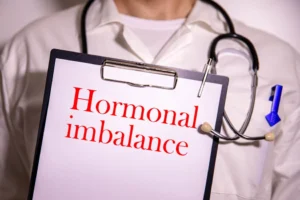Everyone gets headaches daily, with some experiencing migraines or head-splitting ones. We often get headaches due to many reasons: dehydration, stress, lack of sleep, or bad posture. But what we don’t know is that there are different types of headaches we experience.
Headaches do not mean the same thing at all. There are different types of headaches that humans usually experience regularly. It is important to know which type of headache you frequently experience because headaches signify something more complicated, from food poisoning, worsening eyesight, and even brain aneurysms.
This article discusses the four different types of headaches, what they are usually associated with, and what we can do about them.
Different Types of Headaches
There are generally four types of headaches that people experience. Knowing which type you have is important because it can help you to prevent headaches or lessen their severity.
The four types of headaches are:
- Tension headaches
- Migraines
- Cluster headaches
- Sinus headaches
Tension Headaches
Tension headaches are usually the most common type of headaches. They are usually caused by stress, tension, or bad posture. The pain is usually generalized and feels like a tight band around your head. You may also feel pressure in your temples or on the sides of your head.
Tension headaches also happen to people who experience a lot of stress. This type of headache is usually treated with over-the-counter medication and relaxation techniques. Lastly, tension headaches are usually triggered by something, such as bright lights or loud noises.
Usually, over-the-counter medication treatment of tension headaches, such as ibuprofen or acetaminophen. If the headaches are severe and happen often, your doctor may prescribe stronger medication. Relaxation techniques, such as yoga or massage, can also help to relieve tension headaches.
Tension headaches are known as the most common type of headaches. If you frequently experience headaches, you will most likely have tension headaches. If you are confirmed to have tension headaches, it is recommended that you stay away from your triggers, such as going to concerts and having bright lights at home, especially in the bedroom.
Migraines
Migraines are headaches accompanied by other symptoms such as nausea, vomiting, or sensitivity to light and sound. The pain is usually throbbing and felt on one side of the head.
Migraines are usually caused by stress, hormones, certain foods, and weather changes. If you happen to have migraines, it is important to keep a headaches diary to help you identify your triggers.
Vertigo and migraines are strongly associated with one another. Many people who experience migraines also experience vertigo. In addition, people who experience vertigo often feel spinning or swaying. It can be dangerous, leading to falls resulting in accidents and potential injuries.
Lastly, a migraine is usually triggered by something. For some, it may be a specific food that they ate. Others may experience migraines when under stress or during a certain season.
There is no one-size-fits-all approach or a universal cure to treating migraines. Some people find relief by taking over-the-counter medication, such as ibuprofen or aspirin. Others may need prescription medication to treat their migraines. If you have migraines, talking to your doctor about the best treatment options is important.
Cluster headaches
These are headaches that are usually coming in groups or cycles. They are usually very severe and felt on one side of the head. Cluster headaches are often associated with burning or piercing pain.
The exact cause of cluster headaches is, as of now, unknown. However, they are thought to be related to changes in the brainstem and the trigeminal nerve. Cluster headaches are seen to be more common in men than women. In addition, they are more common in people who smoke cigarettes.
Cluster headaches are typically known as headaches that come in cycles. If your headaches come and go in groups, you may have cluster headaches. Some illnesses associated with cluster headaches are high blood pressure, obesity, and diabetes.
If you have cluster headaches, it is important to avoid your triggers. Triggers for cluster headaches are not well known. However, some triggers may include alcohol, as well as cigarette smoke.
Sinus headaches
Finally, sinus headaches are headaches that are caused by a sinus infection. Sinus headaches are often accompanied by congestion, fever, and a runny nose. The pain is usually felt in the forehead, around the eyes, or in the cheeks.
A sinus infection typically causes sinus headaches. You will likely have a sinus headache if you have a fever, congestion, and a runny nose. Doctors can treat sinus headaches with antibiotics if you have a sinus infection. In addition, over-the-counter medications such as ibuprofen can help to relieve the pain.
Also, you can treat sinus headaches with over-the-counter medications, such as ibuprofen. If you happen to have a sinus infection, you may also need antibiotics. Sinus headaches usually go away on their own within a week or two.
Sinus headaches are typically easier to treat than migraines or cluster headaches. However, they can still be quite painful. If you have a sinus headache, it is important to see your doctor to ensure that you do not have a sinus infection.
What happens if you don’t get your headaches treated?
If you don’t get your headaches treated, they may worsen over time. In addition, headaches can lead to other health problems. For example, headaches can make concentrating at work or school difficult. In addition, headaches can make it difficult to get a good night’s sleep.
If you have headaches, it is important to see your doctor. Your doctor can help you find the best treatment for your headaches. In addition, your doctor can help you learn about different ways to prevent headaches.
Final Thoughts
There are four main types of headaches: tension headaches, migraines, cluster headaches, and sinus headaches. Each type of headache is associated with different symptoms. In addition, each type of headache has different treatment options.
If you have headaches, it is important to see your doctor. Your doctor can help you find the best treatment for your headaches. In addition, your doctor can help you learn about different ways to prevent headaches.
McGuire Anesthesia LLC dba A Better Solution offers effective and professionally tried and tested treatment options for headaches. They are known as the experts for any headache, among many other services, including aesthetic services to their patients. You are surely in good hands with its team of experts.






